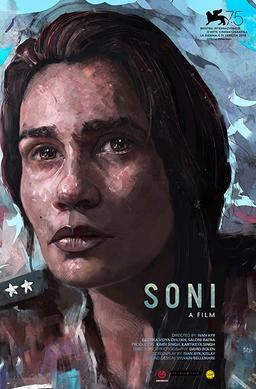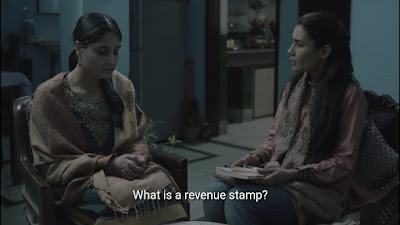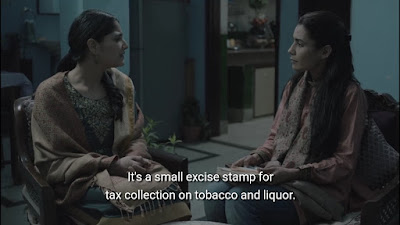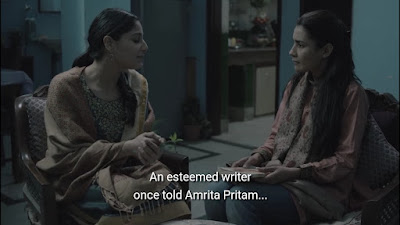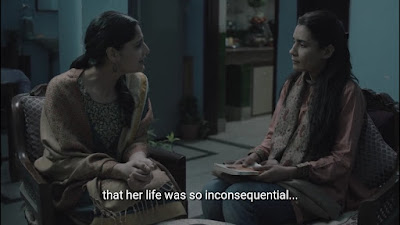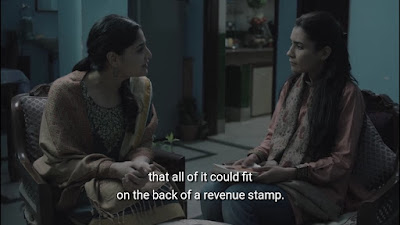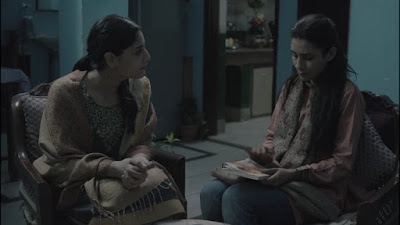I do not recall when two policewomen were lead characters in a realistic Hindi drama. Ever. Soni‘s greatest strength – The issues are never directly raised; we are allowed to decipher them. How hard is it to be a policewoman in India? The makers of Soni delve into the heart of the matter.
Soni, at the time of writing, is the best Netflix-produced Indian movie playing on the streaming platform.
Indian movies and policewomen
I can’t remember a single Indian movie that features realistic portrayal of a policewoman’s life, as depicted here in Soni.
All I can recall are powerful, intimidating policewomen, played up as invincible superheroes, or ones wronged and seekign revenge. Several woman supercop movies have been an inspiration from the real-life acts of brave cops like Kiran Bedi.
All through the nineties, Telugu actress Vijayashanti starred in a series of movies featuring her as the heroic cop. Vijayashanti, infact won the national award for playing a cop modelled on the life of Kiran Bedi. Karthavyam (1990), for which Vijayashanti won the best actress award, was later remade as Tejasvini (1994) with the actress playing the role again.
The depiction was usually melodramatic and heightened, much like the one-man male hero was shown – Bashing up ten goons singlehandedly and miraculously not getting hit by any bullet whatsoever.
The Rani Mukherjee-starrer Mardaani (2014) and its sequel Mardaani 2 (2019) both were hard-hitting takes, but also featured Hindi film escapism. My biggest issue with Mardaani 2 was featuring the rapist and murdered as the narrator. This plot device almost dangerously validates the criminal’s actions. ‘Mardaani’ translated in Hindi means masculine, an ironical title to celebrate a female cop lead.
My favourite female cop has been the Konkana Sen Sharma cameo in Akira (2016), a remake of the Tamil action thriller Mouna Guru (2011). Sharma stars as a pregnant superitendent, convincingly cracks a case despite her limited mobility.
An underrated Hindi cop suspense drama that needs a rewatch is the Sushmita Sen-starring Samay: When Time Strikes (2003).
Soni is a far cry from a long line of policewoman-as-hero movies. That’s what makes it distinct and an achievement.
Violence, women and tradition
Soni, debutant director Ivan Ayr’s exceptional social drama is a telling exploration of prejudices, judgments and hurdles two policewomen face every day.
Short-tempered police officer Soni (Geetika Vidya Ohlyan) is divorced and lives alone. She tags along with Senior Superintendent Kalpana Ummat (Saloni Batra) at work.
The movie begins with Soni badly injuring a street goon who tries to harass her on duty. A few days later, a furious Soni beats up a misbehaving drunken navy officer. Kalpana is forced to demote her to taking up distress calls.
Will Soni survive in an unfair world?
Balanced, symbolic take
Geetika Vidya Ohlyan and Saloni Batra are both superb in their realistic acts.
Screenplay writers Ayr and Kislay quietly, effectively convey the deep inherent conflicts that date generations.
A married woman is repeatedly asked about having kids by her family, friends and relatives, as if there is nothing else to talk about. A single woman is told to make up with her ex-husband, for the sake of it. A policewoman inflicting violence is perceived as outrageous.
Women are soft, vulnerable and desperately need protection are notions exposed through Soni’s ex-husband Naveen (Vikas Shukla).
How mocking sexuality and menstruation can awfully affect a growing girl’s life is sensitively done.
The Amrita Pritam book title touch makes for a searching, questioning end – do we take the women in our life for granted?
